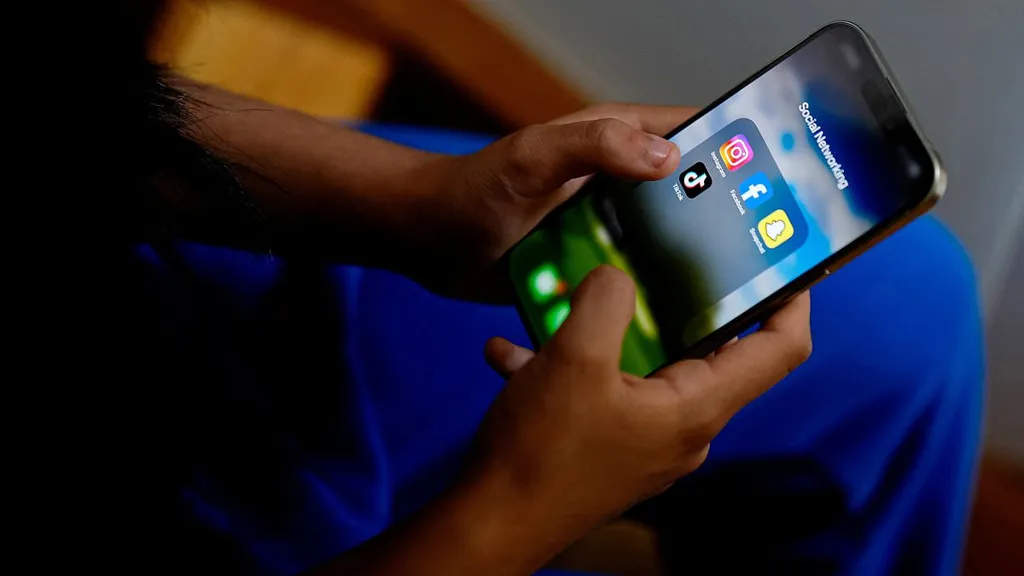Denmark said Tuesday it planned to introduce a social media ban for children under the age of 15.
Prime Minister Mette Frederiksen did not specify which social media networks would fall under the ban, nor how it would work in practice, as she announced the initiative in a speech to parliament at the opening of its autumn session.
The bill, the timeline of which remains unspecified, would authorise parents to let their child use social media from the age of 13.
'The cell phone and social media are robbing our children of their childhood,' Frederiksen said, arguing that 60 percent of Danish boys aged 11 to 19 preferred to stay home over spending time with friends.
Australia has been a leader in global efforts to prevent internet harm among young people.
In late 2024, its parliament adopted a ban on social media for under-16s, though there are still almost no details on how the measure would be enforced.
Platforms such as Facebook, Snapchat, TikTok and YouTube fall under the Australian ban's remit.
The move came despite concerns that the proposal was rushed through parliament without proper scrutiny and that Australia would be the first country to implement such a ban.
Denmark said Tuesday it planned to introduce a social media ban for children under the age of 15.
Prime Minister Mette Frederiksen did not specify which social media networks would fall under the ban, nor how it would work in practice.
The laws raising the social media age limit are regarded as the strictest in the world.
Communications minister Michelle Rowland said the age limit would keep children and teenagers safe online.
'We know parents are concerned about the harms to children and we have taken a decision to support them,' she told parliament at the time.
'Keeping Australians safe online requires decisive action and the Albanese government is delivering exactly that.'
Prime Minister Albanese added: Social media is doing social harm to our children and I want Australian parents to know that we have their backs.
'Platforms now have a social responsibility to ensure the safety of our kids is a priority for them.'
Under the new laws, social media giants will face fines up to $50million if they fail to take 'reasonable steps' to keep children under the age of 16 away from their platforms.
There are no penalties for parents or children who break the age restrictions.
Messaging apps, online gaming services and 'services with the primary purpose of supporting the health and education of end-users' are not included in the ban.
YouTube has also been omitted.
And in June, Greece proposed setting an 'age of digital adulthood' across the 27-country European Union, meaning children would not be able to access social media without parental consent.
